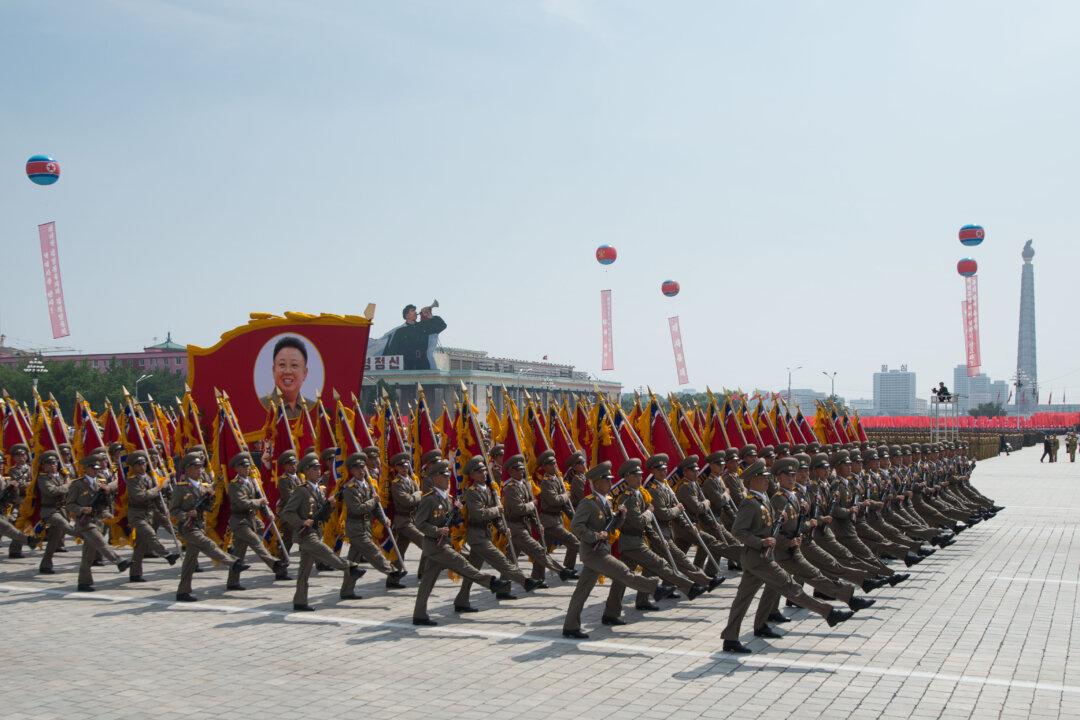WASHINGTON—The Democratic People’s Republic of Korea (DPRK) is regarded as the most oppressive political system in the world. Isolated from the rest of the world, with malnutrition of the general public, slave labor, and the absence of individual rights and freedoms—North Korea lies ranked at the bottom of nations, where the human misery is unfathomable.
How does the current regime under Supreme Leader Kim Jong-un maintain social control and perpetuate itself? In a report released on Feb. 10 at the American Enterprise Institute (AEI), author Robert Collins has provided an inside look at the DPRK, a comprehensive analysis of North Korea’s unique totalitarian control system.
In “Pyongyang Republic: North Korea’s Capital of Human Rights Denial,” Collins explains the system of sanctions and incentives that maintain the Kim Dynasty rule, culling data from a vast number of sources, including his own interviews for over 30 years of defectors in their native Korean language. All conclusions are backed up by 510 footnotes. The 177-page report is sponsored by the Committee for Human Rights in North Korea (HRNK).
The power structure of the country is wholly centralized. At the top of the pyramid is the Supreme Leader and people closest to him. Geographically, the capital city, Pyongyang, is “the power center of the Kim family regime,” says Collins.
The people who are most important for the Kim family political control are predominately located in Pyongyang. The Korean Workers’ Party, all government and security agencies, and the military are run out of the capital city. It’s where Koreans enjoy the most privileges, the best food and housing, health care and schools, and culture, with Pyongyang’s gyms, museums, playgrounds, and exhibition halls. Naturally, North Koreans want to live in Pyongyang.





